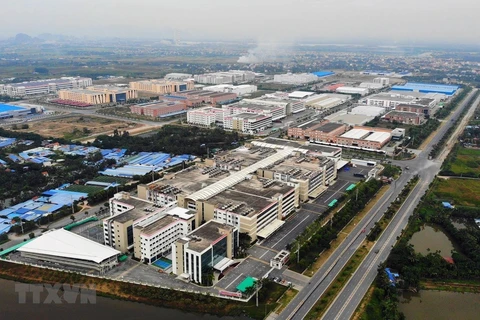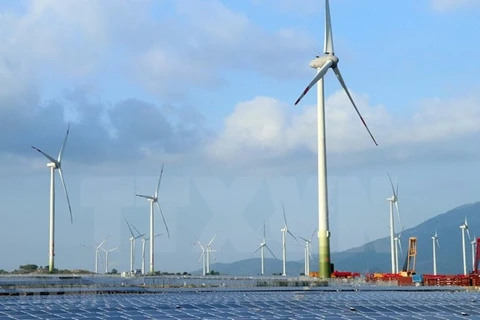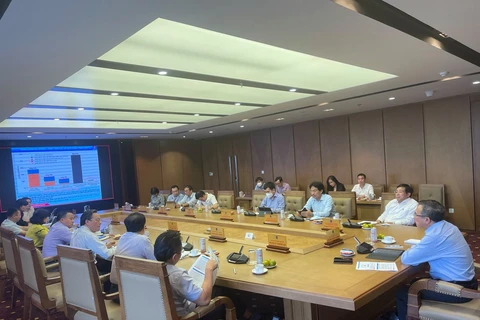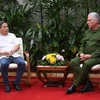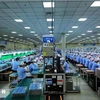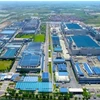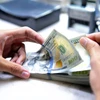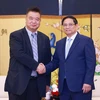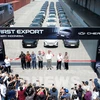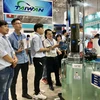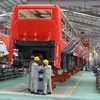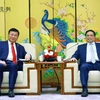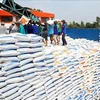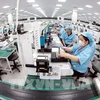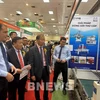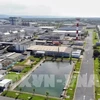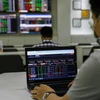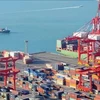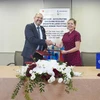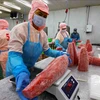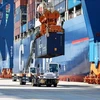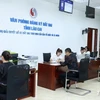Hanoi (VNA) – Delegates at an online seminar on December 21 exchanged views on the role of hydrogen energy in Vietnam’s journey to net zero carbon emissions.
The online seminar formed part of activities within the Renewable Energy Month 2021 (REM21) initiated and organised by the Vietnam Sustainable Energy Alliance (VSEA) from December 2 to 23.
Associate Prof. Dr. Nguyen Hong Quan, Director of the Institute for Circular Economy Development (IECD), told the seminar that the building of a circular economy has been identified as one of Vietnam’s development orientations for the 2021-2030 period, initially laying a foundation for the country to reach the target of green, clean and sustainable development.
According to Dr. Tran Thien Khanh, head of renewable energy and material circular economy unit at the IECD, hydrogen is considered a standby energy source that can meet the world's energy demand and reduce harmful emissions to the environment, through cutting-edge production technologies and methods.
However, production costs of hydrogen fuel remain high, requiring research into new production methods, he said.
Foreign experts shared experience in renewable energy development in their countries, and introduced trends and technology related to hydrogen fuel.
The participants discussed how to connect agencies and organisations to devise targets of clean energy development in Vietnam, and to bring issues regarding hydro and renewable energy closer to investors, agencies, factories and scientists.
At the 26th United Nations Climate Change Conference of the Parties (COP26) held in the UK last month, Prime Minister Pham Minh Chinh affirmed that Vietnam will join hands with about 140 other countries worldwide to achieve the target of net zero emissions by 2050./.
The online seminar formed part of activities within the Renewable Energy Month 2021 (REM21) initiated and organised by the Vietnam Sustainable Energy Alliance (VSEA) from December 2 to 23.
Associate Prof. Dr. Nguyen Hong Quan, Director of the Institute for Circular Economy Development (IECD), told the seminar that the building of a circular economy has been identified as one of Vietnam’s development orientations for the 2021-2030 period, initially laying a foundation for the country to reach the target of green, clean and sustainable development.
According to Dr. Tran Thien Khanh, head of renewable energy and material circular economy unit at the IECD, hydrogen is considered a standby energy source that can meet the world's energy demand and reduce harmful emissions to the environment, through cutting-edge production technologies and methods.
However, production costs of hydrogen fuel remain high, requiring research into new production methods, he said.
Foreign experts shared experience in renewable energy development in their countries, and introduced trends and technology related to hydrogen fuel.
The participants discussed how to connect agencies and organisations to devise targets of clean energy development in Vietnam, and to bring issues regarding hydro and renewable energy closer to investors, agencies, factories and scientists.
At the 26th United Nations Climate Change Conference of the Parties (COP26) held in the UK last month, Prime Minister Pham Minh Chinh affirmed that Vietnam will join hands with about 140 other countries worldwide to achieve the target of net zero emissions by 2050./.
VNA

